-
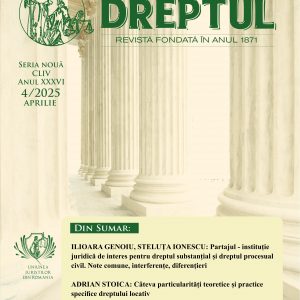
-
 Contractul de asistență juridică învestit cu formulă executorie, în condițiile legii, constituie titlu executoriu cu privire la restanțele din onorariu și alte cheltuieli efectuate de avocat în interesul clientului. Este nelegală executarea silită pornită pentru o sumă pe care creditoarea o apreciază ca fiind datorată cu titlu de prejudiciu pentru încălcarea obligațiilor contractuale. Creanța nu reprezintă o plată pentru o activitate profesională desfășurată de societatea de avocatură, ci o despăgubire pentru încălcarea clauzelor contractuale de către contestator, având astfel caracterul unei clauze penale. Din această perspectivă nu prezintă relevanță în ce măsură creditoarea putea desfășura activități de intermediere sportivă ori dacă putea pretinde debitorului executarea obligației garantate potrivit contractului de ipotecă mobiliară pentru o nerespectare a obligațiilor asumate în cazul unui transfer. Nu este permis ca prin convenția lor părțile să poată ca, sub denumirea de „onorariu”, să-și creeze un titlu executoriu pentru o creanță care în realitate este o despăgubire.
Contractul de asistență juridică învestit cu formulă executorie, în condițiile legii, constituie titlu executoriu cu privire la restanțele din onorariu și alte cheltuieli efectuate de avocat în interesul clientului. Este nelegală executarea silită pornită pentru o sumă pe care creditoarea o apreciază ca fiind datorată cu titlu de prejudiciu pentru încălcarea obligațiilor contractuale. Creanța nu reprezintă o plată pentru o activitate profesională desfășurată de societatea de avocatură, ci o despăgubire pentru încălcarea clauzelor contractuale de către contestator, având astfel caracterul unei clauze penale. Din această perspectivă nu prezintă relevanță în ce măsură creditoarea putea desfășura activități de intermediere sportivă ori dacă putea pretinde debitorului executarea obligației garantate potrivit contractului de ipotecă mobiliară pentru o nerespectare a obligațiilor asumate în cazul unui transfer. Nu este permis ca prin convenția lor părțile să poată ca, sub denumirea de „onorariu”, să-și creeze un titlu executoriu pentru o creanță care în realitate este o despăgubire. -
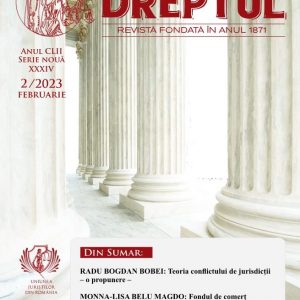
-

-
 In the judicial doctrine and practice, the differences of opinion and the plurality of the proposed solutions are not only an inherent effect of a current, complex and moldable legal reality, but also a desideratum of identifying the correct way of interpreting the legal norms in force and of resolving the legal disputes brought to justice. One of the legal institutions specific to administrative law among the most disputed over the last three decades is the one aimed at legally empowering the courts of law to verify the way in which the public administration authorities exercise their discretionary power to assess the opportunity to issue/adopt administrative documents, as well as the identification of the limits and, possibly, of the exceptions that can be retained from the rule of judicial control over the activity of the public institutions. The analysis of the legal topic in question will consider the approach of some didactic, linguistic, grammatical and of legal analysis methods, integrated and synergistic, having as sole finality the clarification of the meaning and of the limits, objective and subjective, of the right of appreciation and of the discretionary power which the public institutions benefit from. Therefore, it is required, in the beginning, to reveal the polyvalent meaning, attributed in the ordinary language to the notion „opportunity”, semantics that will be the basis for identifying the legal guarantees inherent to the process of exercising by the public administration authorities of the right to assess the time and appropriate means of issuance/adoption of the administrative acts. In the present study, without pretending to exhaust the issues presented above and to put an end to the long differences of opinion that it has caused, we intend to identify the various opinions expressed in the specialized literature, to provide a systematic interpretation of the various solutions adopted by the courts of law and, finally, to propose a viable and pertinent solution to the legal issue under discussion, offering logical-legal arguments and of teleological interpretation of the various competing legal norms, incidental in this legal matter. We intend to offer, through the conclusions of this study, a valuable and applied tool to practitioners in the field of administrative law, in identifying possible answers to complex and elaborate questions, involved by the activity of resolving the legal disputes brought to court with such an object.
In the judicial doctrine and practice, the differences of opinion and the plurality of the proposed solutions are not only an inherent effect of a current, complex and moldable legal reality, but also a desideratum of identifying the correct way of interpreting the legal norms in force and of resolving the legal disputes brought to justice. One of the legal institutions specific to administrative law among the most disputed over the last three decades is the one aimed at legally empowering the courts of law to verify the way in which the public administration authorities exercise their discretionary power to assess the opportunity to issue/adopt administrative documents, as well as the identification of the limits and, possibly, of the exceptions that can be retained from the rule of judicial control over the activity of the public institutions. The analysis of the legal topic in question will consider the approach of some didactic, linguistic, grammatical and of legal analysis methods, integrated and synergistic, having as sole finality the clarification of the meaning and of the limits, objective and subjective, of the right of appreciation and of the discretionary power which the public institutions benefit from. Therefore, it is required, in the beginning, to reveal the polyvalent meaning, attributed in the ordinary language to the notion „opportunity”, semantics that will be the basis for identifying the legal guarantees inherent to the process of exercising by the public administration authorities of the right to assess the time and appropriate means of issuance/adoption of the administrative acts. In the present study, without pretending to exhaust the issues presented above and to put an end to the long differences of opinion that it has caused, we intend to identify the various opinions expressed in the specialized literature, to provide a systematic interpretation of the various solutions adopted by the courts of law and, finally, to propose a viable and pertinent solution to the legal issue under discussion, offering logical-legal arguments and of teleological interpretation of the various competing legal norms, incidental in this legal matter. We intend to offer, through the conclusions of this study, a valuable and applied tool to practitioners in the field of administrative law, in identifying possible answers to complex and elaborate questions, involved by the activity of resolving the legal disputes brought to court with such an object. -
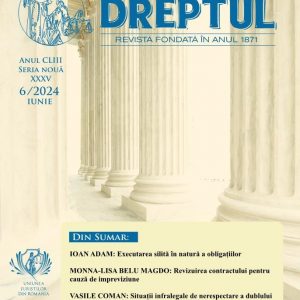
-
 This paper analyses judicial limits of property in national legal context, where this kind of property limits are relatively young comparing to the legal limits, which are clearly delimited. The study begins with brief comparative law on similar English, French, and Canadian regulations, continuing by presenting the doctrinal divergence on the foundation of civil liability for abnormal inconveniences of good neighbourhood. The study shows different points of view from doctrine on the fundament of civil liability for causing inconveniences by exceeding the reasonable boundaries of neighbourhood. The paper focuses on differentiating between abuse of right, tortious civil liability and extra-contractual liability, proposing the last one as the fundament of civil liability for causing abnormal inconveniences that bothers the relations of good neighbourhood. Also, it is brought into discussion the meaning of „owner” to which Article 630 of the Civil Code refers, and the implications regarded by giving a restricted meaning to this notion used by the legislator. Still, the French doctrine and the European Court of Human Rights Jurisprudence is orientated to a broad interpretation of this notion.
This paper analyses judicial limits of property in national legal context, where this kind of property limits are relatively young comparing to the legal limits, which are clearly delimited. The study begins with brief comparative law on similar English, French, and Canadian regulations, continuing by presenting the doctrinal divergence on the foundation of civil liability for abnormal inconveniences of good neighbourhood. The study shows different points of view from doctrine on the fundament of civil liability for causing inconveniences by exceeding the reasonable boundaries of neighbourhood. The paper focuses on differentiating between abuse of right, tortious civil liability and extra-contractual liability, proposing the last one as the fundament of civil liability for causing abnormal inconveniences that bothers the relations of good neighbourhood. Also, it is brought into discussion the meaning of „owner” to which Article 630 of the Civil Code refers, and the implications regarded by giving a restricted meaning to this notion used by the legislator. Still, the French doctrine and the European Court of Human Rights Jurisprudence is orientated to a broad interpretation of this notion. -
 The challenge on enforcement does not refer to the merits of the judgment of conviction, but it is directed against its enforcement and, for this reason, its completion consists in eliminating the illegal matters occurring in the enforcement or during the enforcement of the judgment. The probation service attached to the tribunal has no competence to file a challenge on enforcement with the court of law for reasons of illegality occurred during the surveillance of the person convicted and, in particular, for matters related to the personal interests of the convict. If, during the surveillance, problems or interests of the convict occur that prevent the convict from appearing on the dates scheduled, the probation service has the competence to examine the reasons invoked and revise the initially scheduled surveillance plan.
The challenge on enforcement does not refer to the merits of the judgment of conviction, but it is directed against its enforcement and, for this reason, its completion consists in eliminating the illegal matters occurring in the enforcement or during the enforcement of the judgment. The probation service attached to the tribunal has no competence to file a challenge on enforcement with the court of law for reasons of illegality occurred during the surveillance of the person convicted and, in particular, for matters related to the personal interests of the convict. If, during the surveillance, problems or interests of the convict occur that prevent the convict from appearing on the dates scheduled, the probation service has the competence to examine the reasons invoked and revise the initially scheduled surveillance plan. -
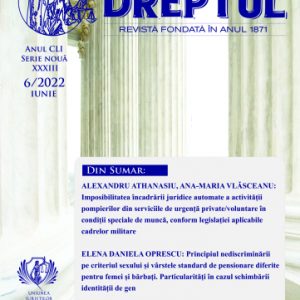
-
 Completul pentru dezlegarea unor chestiuni de drept în materie civilă al Înaltei Curți de Casație și Justiție s-a pronunțat pe 17 februarie 2020 cu privire la reținerea contribuției de asigurări sociale de sănătate asupra indemnizațiilor plătite în baza Legii nr. 341/2004
Completul pentru dezlegarea unor chestiuni de drept în materie civilă al Înaltei Curți de Casație și Justiție s-a pronunțat pe 17 februarie 2020 cu privire la reținerea contribuției de asigurări sociale de sănătate asupra indemnizațiilor plătite în baza Legii nr. 341/2004 -
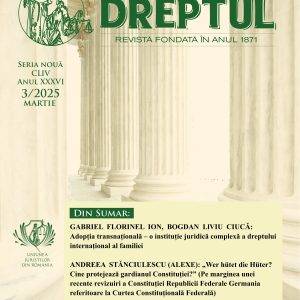
-
 The success of the states global fight against illicit drug trafficking requires effective international cooperation in the judicial sphere. Controlled drug delivery method involves cooperation of several countries to identify, to land and hold liable in criminal terms the drug traffickers who carry out criminal activity or part of this activity in several states. Throughout the article, the author makes a critical examination of national legislation and judicial practice in the field of controlled drug delivery institution.
The success of the states global fight against illicit drug trafficking requires effective international cooperation in the judicial sphere. Controlled drug delivery method involves cooperation of several countries to identify, to land and hold liable in criminal terms the drug traffickers who carry out criminal activity or part of this activity in several states. Throughout the article, the author makes a critical examination of national legislation and judicial practice in the field of controlled drug delivery institution.
